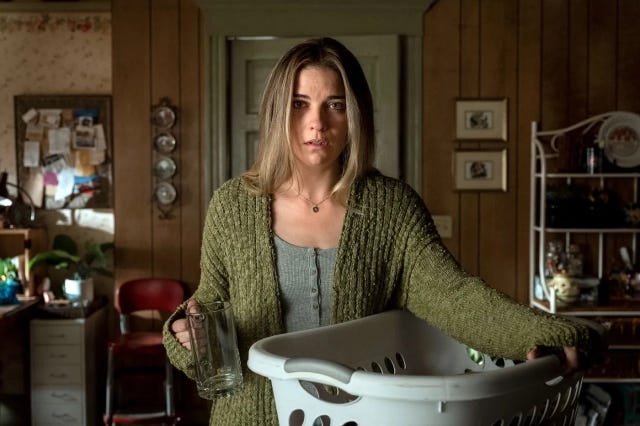When you’re not happy. You feel unseen, overwhelmed, and alone in the day-to-day. You may tell yourself:
“Things aren’t that bad.”
“At least they’re not like my ex.”
“At least they don’t hit me.”
You may be saying these things to yourself, but they came from somewhere. Maybe you’ve even heard it from others: friends, therapists, family members. Although well meaning, in the face of discomfort, encouraging you to compare the shit you’re dealing with to how much worse it could be solves nothing. It keeps you stuck. It communicates:
You should be grateful for less.
Rather than comparing our relationships to what we think is ideal, we often compare them to what’s worse. And when you’ve lived through instability, inconsistency, or outright harm, something barely functional can start to look like love.
But just because it’s better than bad doesn’t make it good.
In this short video, I talk about the insidious way mediocrity and emotional abandonment are excused because they’re not blatantly violent.
“At least they don’t hit you.”
That phrase encourages us to minimize our needs, to over-function, to take on the emotional and logistical labor of a relationship without reciprocity.
It says:
Their refusal to participate in parenting or planning? Understandable.
Their prioritizing of rest, leisure, or autonomy at your expense? Normal.
Your exhaustion and emotional isolation? Acceptable.
Because at least you’re not being hurt physically.
We often expect less emotional attunement, relational awareness, and self-reflection from men as a part of the cultural script. But these dynamics show up in relationships of all kinds, regardless of gender or sexuality. It’s not about who someone is, it’s about what we’ve been taught to tolerate.
Mediocrity thrives when we normalize neglect. Disconnection looks like peace when you’ve only known chaos. And familiarity feels like safety when you’ve grown up bracing for instability.
This is how we stay stuck. When we’re complacent. When we misuse comparison and let it lull us into complacency. A failure to imagine how good things could be is how the bar stays so low.
Let’s demand more.
The show Kevin Can F**ck Himself does a great job covering this dynamic.
Image Description: Still image from the show Kevin Can F**ck Himself. A woman with a tired, blank stare and unkempt hair, holding a laundry basket and an empty mug.
Want more of these conversations?
On Time to Lean, my co-host Crystal Britt and I unpack dynamics like invisible labor, weaponized incompetence, gender scripts, neurodivergence, and what it really takes to build equitable relationships.
Subscribe or listen wherever you get your podcasts: timetoleanpod.substack.com
💬 Have you ever told yourself, “It’s not that bad”? What made you stay? What helped you start to want more?






The way couple's therapists can say this in a LOT of insidious ways: "Well have you considered that they're trying a-b-c?" It can also be hard to notice the difference between providing grace and gaslighting ourselves in abusive dynamics--esp if you've been conditioned to excuse those dynamics bc of religion, family of origin, etc. I loved the way Kevin Can F*ck Himself showed the contrast figuratively and literally.
Absolutely, and it’s not just friends. When my ex and I got into arguments he would bring this up a ton “I don’t call you names, I don’t yell at you” etc and that is such a fuckin low bar for a relationship! The fact that someone would even think to say it is so devastating for all of us. ❤️🩹